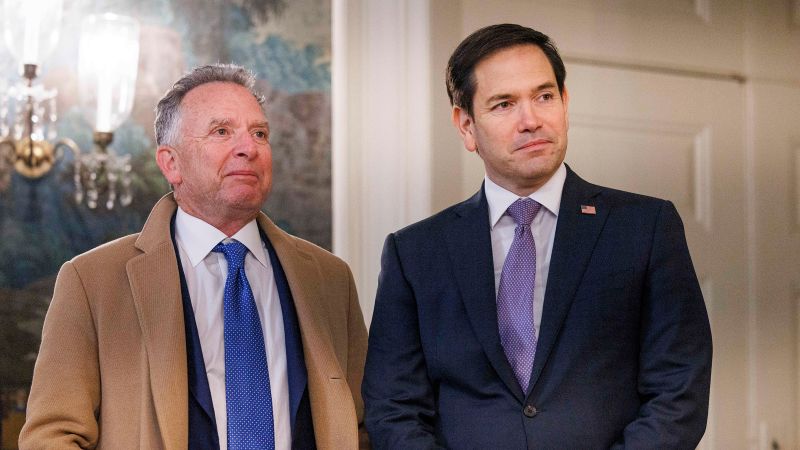CNN —
Marco Rubio’s Role as Secretary of State
Marco Rubio entered his position as Secretary of State under Donald Trump fully aware of the challenges he would face, including Trump’s history of publicly dismissing officials via Twitter and his previous nicknaming of Rubio as “Little Marco.” Despite these concerns, Rubio pursued the esteemed role after missing out on the vice presidency to JD Vance.
Unexpectedly, Rubio found his position complicated by the influence of Steve Witkoff, a billionaire and close friend of Trump. In the early months of the administration, Rubio has often been sidelined as Witkoff’s role has expanded beyond his formal designation as special envoy to the Middle East.
Witkoff’s Expanding Influence
Witkoff has emerged as a pivotal figure in Trump’s foreign policy initiatives, negotiating high-profile matters, such as the release of hostages in Israel and talks surrounding the conflicts in Gaza and Ukraine. He recently met with Russian President Vladimir Putin, further solidifying his position as a prominent mediator in international affairs.
Despite Witkoff’s assertive role, Rubio is actively engaging with various international issues, including immigration talks in Central America and discussions on the ongoing wars in Ukraine and Gaza. Yet, he has expressed discomfort regarding certain administration actions and has found himself disconnected from key decisions, raising doubts about his influence with Trump.
Frustrations and Challenges
Observers note that Rubio feels frustrated by the diminished scope of his responsibilities. Although his diplomatic engagements have garnered praise, his overall impact appears limited, sometimes overshadowed by Witkoff’s more prominent presence. Concerns have been raised regarding his capacity to influence foreign policy, particularly as he navigates internal conflicts within the administration regarding its approach to Ukraine and foreign aid.
Rubio’s Perspectives and Future Aspirations
While navigating challenges, Rubio hopes to leverage his time as Secretary of State to enhance his political credentials, potentially eyeing a presidential run in 2028. His aim is to establish himself as a consequential leader within the administration over the next year and a half to two years. However, doubts linger about the level of control he has over Trump’s foreign policy decisions, particularly given the ongoing foreign aid freeze initiated under the White House’s direction.
Conclusion: Balancing Acts in Diplomacy
Rubio’s experience has led to mixed reviews from foreign diplomats and fellow State Department officials. Despite signs of potential conflict between his views and those championed by Trump, Rubio’s professionalism and past diplomatic experience remain highly regarded. As he continues in this role, he will strive to assert his influence while balancing the complex dynamics of serving in a cabinet known for its turnover and unpredictability.



